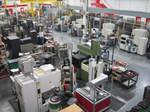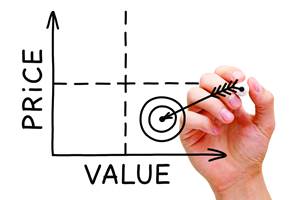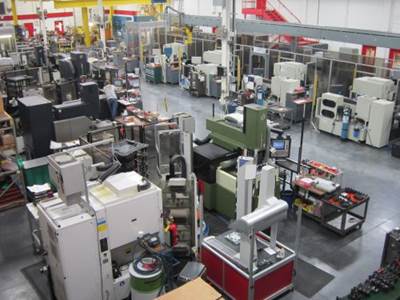Close Relationship with Molder Pays Dividends
Industrial Molds Group
When asked about the relationship between Industrial Molds Group and Pyramid Plastics, the first words out of Kerry Smith’s mouth are that the two companies operate independently, with separate sales forces and customer bases. With that out of the way, however, the account supervisor at Industrial Molds has plenty to say about the advantages of having tool manufacturing and production molding under the same ownership umbrella. Although this situation naturally results in a level of collaboration that might be atypical, any moldmaker that works to build a close relationship with its customers could potentially realize similar benefits.
The most obvious of these is a direct source of new work. When a potential customer comes to Pyramid with an idea for a molded part, chances are good that Industrial Molds Group will have the opportunity to make the tool. The organizations’ respective markets can sometimes limit these opportunities, as Pyramid targets mostly hardware, HVAC and food dispensing, while Industrial focuses mostly on automotive, medical, consumer goods and lighting. Still, Pyramid commonly enlists the services and expertise of its parent company for engineering changes and repair work. In any case, Smith emphasizes that the company is careful to ensure this collaboration only works one way. As he puts it, “We sell Industrial Molds through Pyramid, but we don’t sell Pyramid through Industrial Molds.”
Despite this arrangement, any visitor to Pyramid’s Rockford, Ill., plant will likely encounter at least a few freshly machined molds shipped from Industrial’s facility just a few miles down the road. This tooling isn’t there for production purposes, but for sampling. Although many tool shops work with a molder for sampling, Pyramid’s status as a division of the same company ensures this work can be done “at the drop of a hat,” Smith says. In contrast, an unrelated molder would have its own set of scheduling constraints and priorities, and it might be farther away.
Having a close, full-service injection molding operation readily available for sampling also eliminates the need for Industrial to invest in its own in-house presses. More than one or two of these machines wouldn’t make much sense, but a limited number could also limit the tooling that could be tested. Pyramid, on the other hand, has presses ranging from 40 to 1,000 tons. Industrial can also focus on what it does best rather than working to keep injection presses busy beyond just sampling.
Pyramid also provides a source of frank but constructive criticism. A fresh set of eyes can often spot flaws that people who designed and built a tool might overlook because of their attachment to their own work, Smith says. This feedback can provide valuable lessons about what molders look for in a tool—lessons that can translate to interactions with other customers. For example, working with Pyramid has prompted Industrial to pay more attention to things like access to fittings and how easily tools can be loaded or unloaded from presses. “We try to make our molds more user-friendly,” he says.
Whether under the same ownership or not, both toolmakers and molders can benefit significantly from closer relationships, Smith concludes. “Molders who do sampling have the opportunity to learn by seeing more tools and more types of tools. From our standpoint, we can learn more about the molding process and how things work on that end.”
For more information:
Industrial Molds Group
815-397-2971
industrialmolds.com
Related Content
Making Quick and Easy Kaizen Work for Your Shop
Within each person is unlimited creative potential to improve shop operations.
Read MoreSteps for Determining Better Mold Prices
Improving your mold pricing requires a deeper understanding of your business.
Read MoreThe Role of Social Media in Manufacturing
Charles Daniels CFO of Wepco Plastics shares insights on the role of social media in manufacturing, how to improve the “business” side of a small mold shop and continually developing culture.
Read MoreEditorial Guidelines: Editorial Advisory Board
The Editorial Advisory Board of MoldMaking Technology is made up of authorities with expertise within their respective business, industry, technology and profession. Their role is to advise on timely issues, trends, advances in the field, offer editorial thought and direction, review and comment on specific articles and generally act as a sounding board and a conscience for the publication.
Read MoreRead Next
Implementing Automation
The first two shops I’ve visited as an editor for MoldMaking Technology have made major strides in implementing automation. They’ve also expanded their range of capabilities to cover more than just tooling.
Read MoreHow to Use Continuing Education to Remain Competitive in Moldmaking
Continued training helps moldmakers make tooling decisions and properly use the latest cutting tool to efficiently machine high-quality molds.
Read MoreReasons to Use Fiber Lasers for Mold Cleaning
Fiber lasers offer a simplicity, speed, control and portability, minimizing mold cleaning risks.
Read More















.jpg;maxWidth=300;quality=90)


_300x250 3.png;maxWidth=300;quality=90)







